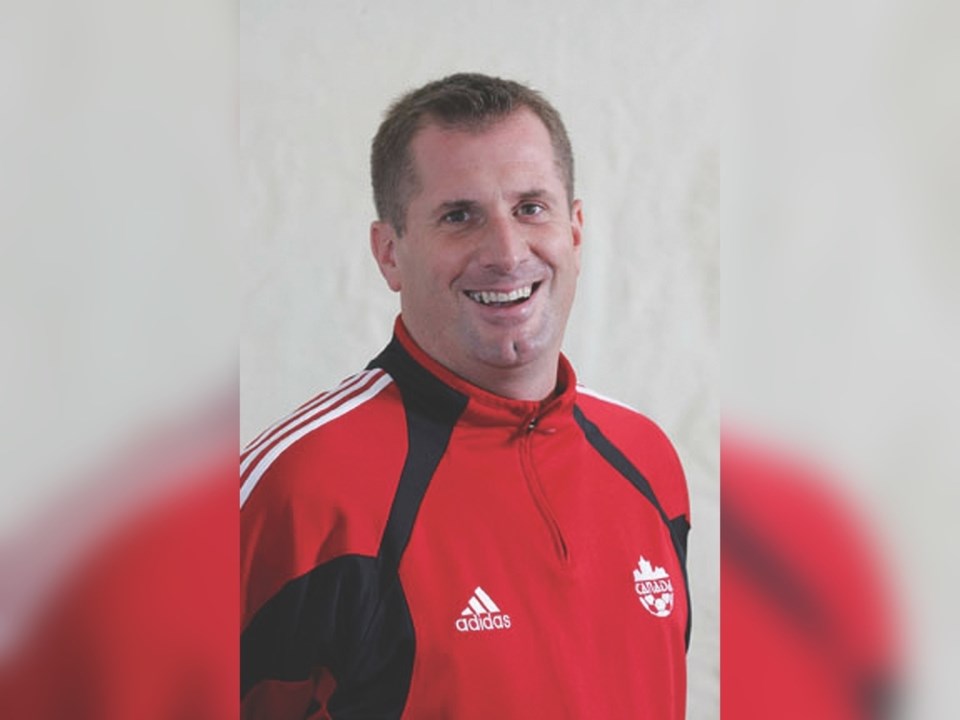The lawyer for disgraced former Vancouver Whitecaps women’s soccer coach Bob Birarda says he should not spend more than eight months in jail for sexual offences involving teenaged girls.
Birarda pleaded guilty in February to four charges, including three counts of sexual assault and one charge of sexual touching while in a position of authority. The victims, whose identities are protected by a publication ban, were all players on the teams he coached between 1988 and 2008.
Birarda’s defence lawyer Bill Smart argued in North Vancouver provincial court Friday (Sept. 2) that he should face eight months in jail followed by four months of house arrest.
“The defence has accepted he's got to go to jail. He’s got to have handcuffs put on him and be led out of court. The question really is … what's the right jail [sentence] that's required?” he asked.
At a sentencing hearing held in June, Crown lawyer Linda Ostry argued before North Vancouver provincial court Judge Deanne Gaffar that Birarda should be sentenced to two year less a day in jail.
But a longer jail sentence may be counterproductive, Smart warned, as it could undermine Birarda’s efforts at rehabilitation.
“You've got someone where there is a low risk of reoffending. He doesn't need to go to jail to protect society. He’s had 14 years to demonstrate that,” he said.
Smart said because of the notoriety of Birarda’s case, both local and international, he now bears a permanent stigma and that any Google search of his name will reveal his past behaviour.
“We submit extraordinary publicity and coverage over his misconduct has been frankly overwhelming. He has been publicly shamed and humiliated in the media and on blogs. We say denunciation of general deterrence has already largely been accomplished by this negative publicity,” Smart said. “He’ll never be able to fully move on in his life.”
According to an agreed statement of facts jointly submitted by the Crown and defence, Birarda had a pattern of establishing a professional relationship with some of the players he coached before pressuring them into sexual relationships. The earliest charge dates back to 1988 when Birarda was 21 and the victim was 17.
Another victim came forward about Birarda based on his similar behaviour in 1990.
In the case of the third victim, he briefly touched her breast while giving her a massage in his apartment following an injury.
Another player told investigators she quit competitive soccer simply to escape Birarda’s advances.
In victim impact statements read out in court in June, the victims said they were afraid of rejecting Birarda or of anyone finding out because he had influence over their careers in soccer. They also spoke of the lasting impacts Birarda’s conduct had on their mental health.
In a 10-minute speech before the court, Birarda apologized directly to his victims.
“I am truly sorry, to each of you for the pain, the upset and the trauma my behavior has caused you. I cannot find the words to adequately express the depth of my regret, sorrow, shame and even self-loathing I've been filled with for all these years,” he said. “An apology from me today probably means very little to you but maybe it will mean something in the years to come. I'm here today to take responsibility for my actions and the impact I've had on you.”
Birarda also addressed his family and friends and those he let down in the rest of the soccer community.
“I apologize for the harm I have caused and for the disgrace and embarrassment I have brought to the sport that I love,” he said.
Although not an excuse for his behaviour, Birarda explained he’d lived with a life-long sense of inadequacy, which affected his judgement and made him selfish, he said.
"I did not understand the importance of keeping my personal relationships separate from my player/coach relationships. I lacked self-awareness and an understanding of the power imbalance that existed.”
In arguing for a lighter sentence, Smart argued Birarda’s guilty plea should be considered, as it spared the victims from having to testify and feel victimized once again. He also read out letters from other players Birarda coached, not to excuse his behaviour, but to speak to the positive influence he’d had on their lives.
Smart said Birarda knows he will be spending time in jail where he fears how we will be treated by other inmates, suggesting he may need to be put in protective custody.
Since his arrest in 2020, Birarda has been under bail conditions forbidding him to go anywhere where people under the age of 18 are likely to be.
Birarda is due back in court for the remainder of his sentencing hearing later in September.




